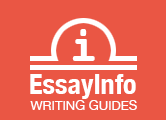Resume Essentials
Before you write, take time to do a self-assessment on paper. Outline your skills and abilities as well as your work experience and extracurricular activities. This will make it easier to prepare a thorough resume.
The Content of Your Resume
Name, address, telephone, e-mail address, web site address
All your contact information should go at the top of your resume.
- Avoid nicknames.
- Use a permanent address. Use your parents' address, a friend's address, or the address you plan to use after graduation.
- Use a permanent telephone number and include the area code. If you have an answering machine, record a neutral greeting.
- Add your e-mail address. Many employers will find it useful. (Note: Choose an e-mail address that sounds professional.)
- Include your web site address only if the web page reflects your professional ambitions.
Objective or Summary
An objective tells potential employers the sort of work you're hoping to do.
- Be specific about the job you want. For example: To obtain an entry-level position within a financial institution requiring strong analytical and organizational skills.
- Tailor your objective to each employer you target/every job you seek.
Education
New graduates without a lot of work experience should list their educational information first. Alumni can list it after the work experience section.
- Your most recent educational information is listed first.
- Include your degree (A.S., B.S., B.A., etc.), major, institution attended, minor/concentration.
- Add your grade point average (GPA) if it is higher than 3.0.
- Mention academic honors.
Work Experience
Briefly give the employer an overview of work that has taught you skills. Use action words to describe your job duties. Include your work experience in reverse chronological order-that is, put your last job first and work backward to your first, relevant job. Include:
- Title of position,
- Name of organization
- Location of work (town, state)
- Dates of employment
- Describe your work responsibilities with emphasis on specific skills and achievements.
Other information
A staff member at your career services office can advise you on other information to add to your resume. You may want to add:
- Key or special skills or competencies,
- Leadership experience in volunteer organizations,
- Participation in sports.
References
Ask people if they are willing to serve as references before you give their names to a potential employer.
Do not include your reference information on your resume. You may note at the bottom of your resume: "References furnished on request."
Resume Checkup
You've written your resume. It's time to have it reviewed and critiqued by a career counselor. You can also take the following steps to ensure quality:
Content
- Run a spell check on your computer before anyone sees your resume.
- Get a friend (an English major would do nicely) to do a grammar review.
- Ask another friend to proofread. The more people who see your resume, the more likely that misspelled words and awkward phrases will be seen (and corrected).
Design
These tips will make your resume easier to read and/or scan into an employer's data base.
- Use white or off-white paper.
- Use 8-1/2- x 11-inch paper.v
- Print on one side of the paper.
- Use a font size of 10 to 14 points.
- Use no decorative typefaces.
- Choose one typeface and stick to it.
- Avoid italics, script, and underlined words.
- Do not use horizontal or vertical lines, graphics, or shading.
- Do not fold or staple your resume.
- If you must mail your resume, put it in a large envelope.

